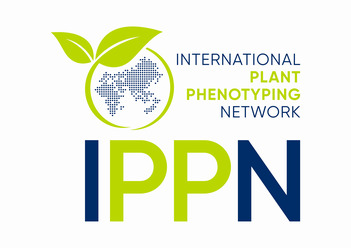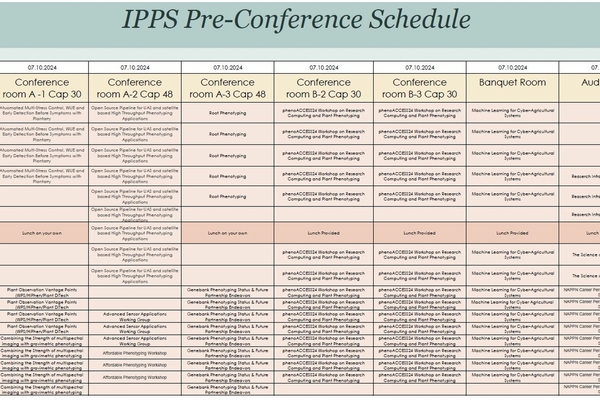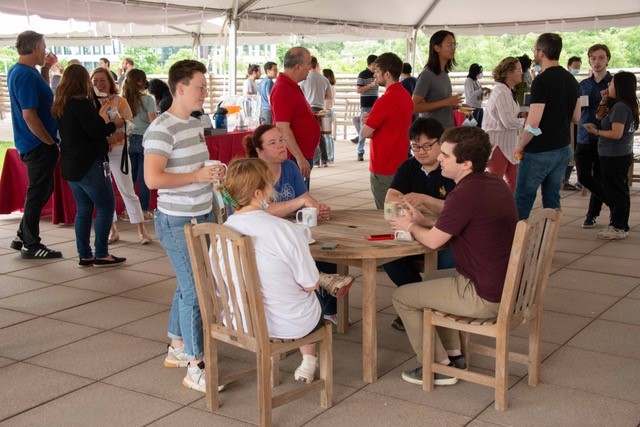IPPS8 - Side Events & Satellite Meetings
In addition to the main presentations at IPPS2022, there will be a variety of workshops, satellite meetings, and other events. This guide will help you find activities that match your interests.
IPPN Satellite Meetings & Workshops:
- Organized by IPPN Working Groups & affiliate groups.
- Open to all attendees (note: some workshops have own registrations).
- Offer insights into current research through invited talks, in-depth discussions, hands-on training.
- Please note that conference workshops are held at the Nebraska Innovation.
- During registration you will be asked to provide information on the workshop/satellite meeting you wish to attend. Please remember to restrict your attendance to only these workshops which do not overlap in time.
Information on parking at the NIC:
Map of available parking spots at NIC
Inforamtion on passpot parking
Important Notes:
- All these activities are free to attend for registered attendees (unless stated differently).
- Not all pre-conference events are available online. Look for the meeting link below the workshop description if online participation is an option.
- For questions, contact the IPPN Office .
Pre-conference Timetable (work in progress):
- Raise awareness and provide information and latest news on major research infrastructure plant phenotyping initiatives of regional and global relevance, their scopes and benefits.
- Provide a platform for exchange and discussion on potential synergies, alignment and joint activities on global level.
- Prepare and strengthen future cooperation between these initiatives.
IPPN Workshops & Satellite Meetings
phenoACCESS24: Workshop on research computing & plant phenotyping
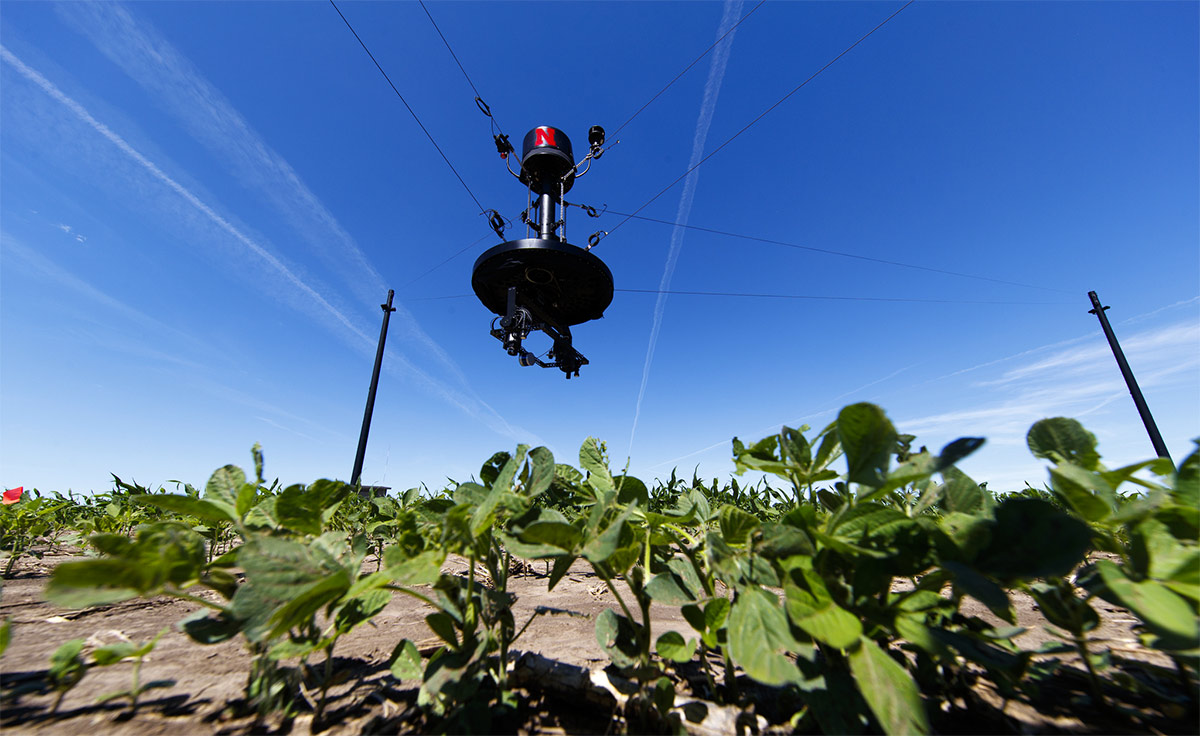
Summary: High-throughput plant phenotyping is computationally intensive, requiring data storage, data processing and analysis, research computing expertise, and mechanisms for data sharing. The phenoACCESS24 workshop is aimed at research computing workforce development by addressing questions such as what is plant phenotyping; what types of data are collected; what are the preprocessing and analytical needs; what tools and platforms exist for data capture, management, analysis, and storage; and how best to collaborate and engage with phenotyping researchers. The full-day agenda will include speakers (scientists and research compute staff); panel discussions (how to work with research computing staff and facilities; how to engage with phenotyping scientists), and networking opportunities (meet-and-greet, ice breakers, small group discussions).
This workshop will take place at the Nebraska Innovation Campus in Lincoln, NE, on Monday, October 7th, 2024. Both in person and remote options for attendance will be available. The target audience includes research compute staff at universities active in plant phenotyping; Campus Champion institutions; phenotyping researchers; research data librarians; representatives of organizations active in phenotyping; and students and postdoctoral scholars. We welcome all members of the research computing and plant phenotyping communities to participate, including undergraduate and graduate students from diverse fields including computer science, engineering, data science, plant science, and other STEM disciplines.
Financial support for student participants (undergraduate and graduate) will be provided by NSF ACCESS. Thanks to a generous grant from NSF ACCESS, undergraduate and graduate students can participate in this workshop AT NO COST. Note: Proof of student status and a letter of support from your advisor ARE REQUIRED as part of the application process.
Participation will be limited to 40 in-person attendees plus invited speakers/panelists, and 100 remote attendees (via Zoom). Anyone interested in attending MUST apply HERE. Applications close on August 30. Hotel rooms are available in Lincoln at special conference rates.
Cost of attendance for non-students is $75 in person/ $50 by Zoom. No payment is required at the time of application.
Application close date: August 30, 2024
Attendee notification: no later than September 15, 2024
Contact: Jennifer Clarke and Adam Caprez
Time: Full day (9:00 - 17:00)
Location: Nebraska Innovation Campus & online
NAPPN Career Perspectives and Networking Session
Summary: The North American Plant Phenotyping Network (NAPPN) will host a pre-meeting focused on early career researchers and networking. The session will begin with a career perspectives talk, followed by a session for early career researchers to meet and network prior to the IPPS meeting.
Contact: Malia Gehan
Time: Half day (13:30 - 18:00)
Location: Nebraska Innovation Campus
Sixth International Workshop on Machine Learning for Cyber-Agricultural Systems (MLCAS2024)
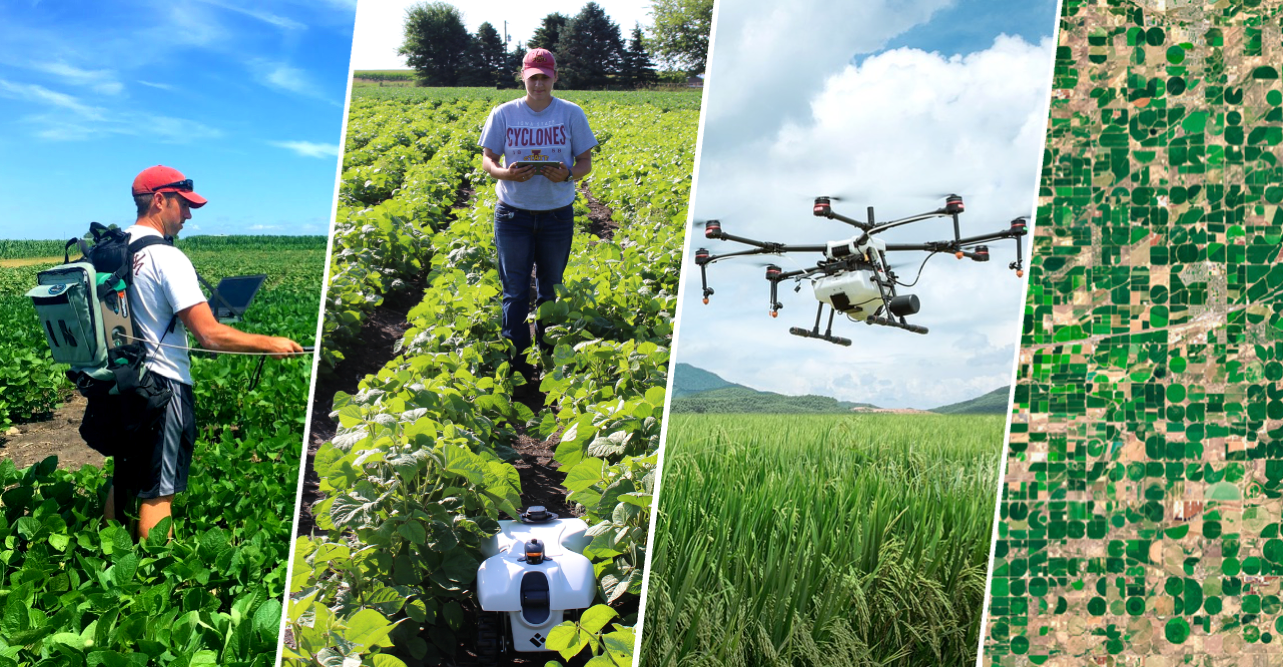
Summary:
Today, efficient, cost-effective sensors as well as high performance computing technologies are looking to transform traditional plant-based agriculture into an efficient cyber-physical system. The easy availability of cheap, deployable, connected sensor technology has created an enormous opportunity to collect vast amounts of data at varying spatial and temporal scales at both experimental and production agriculture levels. Therefore, both offline and real-time agricultural analytics that assimilates such heterogeneous data and provides automated, actionable information is a critical need for sustainable and profitable agriculture.
Data analytics and decision-making for Agriculture has been a long-standing application area. The application of advanced Artificial Intelligence (AI) and Machine Learning (ML) methods to this critical societal need can be viewed as a transformative extension for the agriculture community. In this workshop, we intend to bring together academic and industrial researchers and practitioners in the fields of machine learning, data science and engineering, plant sciences and agriculture, in the collaborative effort of identifying and discussing major technical challenges and recent results related to machine learning-based approaches. It will feature invited talks, oral/poster presentations of accepted papers, and an Ag-ML competition.
Contact: Arti Singh, Soumik Sarkar
Time: Full day (8:45 - 17:00)
Location: Nebraska Innovation Campus
Website: https://2024.mlcas.site/
Link to invitation & important dates
(Please note that IPPS8 attendees can attend this workshop free of costs. For anyone not attending IPPS8, there is a separate registration possible at the workshop's website listed above.)
Root phenotyping mini-symposium and workshop

Summary:
Roots are critical for crop performance and understanding soil carbon dynamics. This mini-symposium will bring together experts and beginners to discuss basic to advanced methods in root phenotyping with opportunity to highlight any root-related posters being presented at the conference. While non-destructive methods utilizing advanced technologies like X-ray CT and MRI remain frontier research areas, tried-and-true methods like root washing and scanning remain the most common methods in use. While AI and neural networks are revolutionizing fields, their applications in plant phenotyping are not fully realized due to a general lack of access. We will discuss how to democratize root phenotyping and how researchers can study roots in any lab, anywhere.
Following the mini-symposium with timely talks and discussion, we will host a hands-on workshop on the use of RhizoVision Explorer for root trait analysis, root respiration measurements with a LiCor gas analyzer, and imaging root anatomy. Participants are encouraged to bring laptops and RhizoVision Explorer ready to use.
This event is hosted by the Root Phenotyping Working Group of the IPPN. The working group is free to join.
Contact: Larry York
Time: Half day (9:00 – 11:30)
Location: Nebraska Innovation Campus
Speakers: Larry York, Stefan Gerth, Alex Bucksch
Genebank Phenotyping: Status & Future Partnership Endeavors (IPPN S&GP Working Group – Workshop)

Summary: Gathering of genebanks and their frequent users interested in streamlining phenotyping of seeds and germplasm material using latest technologies and potentially set up global joint activities in this space
Contact: Uli Schurr; Kioumars Ghamkhar
Time: Half Day (13:30 - 16:30)
Location: Nebraska Innovation Campus
Speakers: TBA
Advanced Sensor Applications: Advancing Research through Infrastructure (IPPN Working Group – Workshop)

Summary: Presentation of the WG of Advanced Sensor Applications and the possibilities for advanced sensors in phenotyping infrastructures.
Contact: Stefan Gerth
Time: 60mins (14:30 - 15:30)
Location: Nebraska Innovation Campus (A-2)
Speakers: TBA
Research Infrastructures Globally
Summary: With this interactive plenum discussion, our initiative of regional/international research infrastructure phenotyping initiatives aims to get in contact with their stakeholders and stimulate interaction between these initiative’s during this year’s IPPS2024. The session builds on a similar session during the IPPS7 in 2022 and provide a platform to exchange on the developments we have seen since then. In order to achieve the best outcomes, we consider the first part to be reserved to frame out & introduce the four initiatives NaPPN (North American Plant Phenotyping Network), EMPHASIS (European research infrastructure on Plant Phenomics), APPN (Australian Plant Phenotyping Network) & IPPN (International Plant Phenotyping Network) via brief presentations. After this, the representatives of the network will answer & discuss questions from the audience. Since this event will be at the beginning of an intensive and interesting week, and directly after a weekend full of travelling, we will ensure to have sufficient coffee available.
Aims
Contact: Roland Pieruschka, Sven Fahrner
Time: 90mins (10:30 - 12:00)
Location: Nebraska Innovation Campus
Speakers:
Richard Dickmann (University of Adelaide), Australian Plant Phenotyping Network
Valerio Hoyos-Villegas (McGill University), North American Plant Phenotyping Network
Stijn Dhondt (VIB), Roland Pieruschka (FZ Jülich), EMPHASIS
Philipp von Gillhaussen, International Plant Phenotyping Network
Open Source Pipeline for UAS and satellite based High Throughput Phenotyping Applications

Summary: Recent advances in sensor technology have revolutionized the assessment of crop health by providing fine spatial and high temporal resolutions at affordable costs. As plant scientists gain access to increasingly larger volumes of Unmanned Aerial Systems (UAS) and satellite High Throughput Phenotyping (HTP) data, there is a growing need to extract biologically informative and quantitative phenotypic information from the vast amount of freely available geospatial data. However, the lack of specialized software packages tailored for processing such data makes it challenging to develop transdisciplinary research collaboration around these data. This workshop aims to bridge the gap between big data and agricultural research scientists by providing training on an open-source online platform for managing big UAS HTP data known as Data to Science. Additionally, attendees will be introduced to powerful Python packages, namely Geemap and Leafmap, designed for the seamless integration and analysis of UAS and satellite images in various agricultural applications. By participating in this workshop, attendees will acquire the skills necessary to efficiently search, visualize, and analyze geospatial data within a Jupyter environment, even with minimal coding experience. The workshop provides a hands-on learning experience through practical examples and interactive exercises, enabling participants to enhance their proficiency and gain valuable insights into leveraging geospatial data for agricultural research purposes.
Contact: Qiusheng Wu and Jinha Jung
Time: Half day (9:00 - 13:00)
Location: Nebraska Innovation Campus
Note: Please note that attendees need to bring their own laptops.
IPPN Working Group Kick-off: The Science of Plant Phenomics

Summary: Over the past decade, plant phenotyping has evolved from a collaborative interdisciplinary effort among researchers into a distinct scientific discipline, attracting researcher who dedicate their entire careers to it. This working group aims to further solidify the status of plant phenotyping as a scientific discipline. To achieve this goal, the group will devise a roadmap to identify, implement, and clarify the scope of plant phenotyping within the broader scientific community. As such, the group aims to enhance the profile of the plant phenomisist.
Contact: Alexander Bucksch
Time: 60mins (12:30 - 13:30)
Location: Nebraska Innovation Campus
Speakers: TBA
Industry Workshop: Automated Multi-Stress Control, WUE and Early Detection Before Symptoms with Plantarray (Plant-DiTech)
Summary: Utilizing advanced Plant-Ditech methodology and technology, researchers can automatically control, monitor, and analyze multiple plant responses simultaneously and continuously, at an unprecedented accuracy and resolution, while managing multiple stress treatments. This includes the simulation of water deficits, flood events, varying nutrient and salinity levels, as well as integrating biotic components or biotic stresses to understand the symbiosis of different factors affecting plant productivity and growth. Additionally, this approach can be easily combined with atmospheric changes in controlled environments, such as temperature, light, humidity, and CO2 levels.
While controlling changes in irrigation and nutrient conditions, the system captures real-time, simultaneous and continuous physiological measurements. It allows researchers to identify and quantify plant Water-Loss, WUE, Stomata Activity and Biomass Growth before visual detection.
In this workshop, we will provide numerous examples from published studies in top journals, demonstrating the functional continuous phenotyping capabilities of the Plantarray system, which automatically manages different stressors while detecting plant reactions weeks before any visual symptoms appear. This is achieved by utilizing key physiological traits such as transpiration, stomatal conductance, and biomass gain measurements. The system’s insights have been found to correlate highly with field yield results.
Contact: Keren Moshelion
Time: 90mins (9:00 - 10:30)
Location: Nebraska Innovation Campus
Speakers: Dror Geva
Industry Workshop: Combining the strength of multispectral imaging with gravimetric phenotyping for deeper understanding of plant physiology (Phenospex)

Summary: Combining the strength of multispectral imaging with gravimetric phenotyping to improve crop breeding at ICRISAT and Ag product development at Winfield United Phenospex’s PlantEye is a unique plant sensor combining 3D vision with the power of multispectral imaging. It captures plants non-destructively and delivers 20+ precise and objective plant parameters readily available in real time after each scan.
In addition, Phenospex has developed the DroughtSpotter, automating irrigation and the collection of high-quality gravimetric data to assess water use parameters of plants and enabling precision drought experiments. Moreover, the PlantEye and DroughtSpotter sensors can be combined providing an exceptional plant parameter set to assess plant growth for different applications. Customers who are working with Phenospex sensors will present their work and discuss their experience with the Phenospex sensors.
The workshop starts off with an overview of the Phenospex sensors followed by customer presentations:
Elizabeth Buescher and Cody Hoerning, Winfield United/USA:
"Innovative Insights: Enhancing WinField United Product Evaluation with PlantEye F500 and Drought Spotter"
The presentation will show how WinField United is utilizing the Phenospex F500 sensors to evaluate new and existing products in the pesticide, plant nutrition, and biological product space. WinField’s approach creates different stress environments within controlled environments to evaluate product claims. WinField United is a cooperative-owned company that supports retail owners across the United States to provide the best products and insights to their growers.
Jana Khovola, ICRISAT/India:
Advanced pheno-tech to enhance genetic gains and cost-efficiency of breeding: A case of peanut breeding program in India
The presentation demonstrates how phenotyping technologies are being applied in the field to develop comprehensive breeding pipelines in India to breed peanuts adapted to climate change. Starting off with crop models, ideotypes are defined for different target production environments and genotypes are evaluated on selected criteria in an experimental field with the Phenospex sensors and selected varieties are then further evaluated with a suite of phenotyping sensors in field experiments at the target locations. This approach provides significant improvements in speed and cost efficiency.
After the presentations, we’ll provide a live demonstration of the Phenospex PlantEye, where attendees can learn how to set up an experiment, scan plants and look at the immediately available 3D cloud points and 20 plant parameters. Attendees are welcome to try the PlantEye for themselves.
This workshop is a unique opportunity to not only learn about Phenospex’s technology and its applications but to discuss with customers about their experience when working with the sensors.
Contact: Paul McMahon
Time: 90mins (15:30 -17:30)
Location: Nebraska Innovation Campus
Speakers: Elizabeth Buescher, Winfield United, USA, Cody Hoerning, Winfield United, USA, Jana Khovola, ICRISAT/Czech University of Life Sciences, India/Czech Republic, Alexander den Ouden, Phenospex, Mexico/Netherlands, Katrin Jakob, Phenospex, USA/Netherlands
Industry Workshop: Plant Observation Vantage Points: Infrastructure Designed to Address Next Generation Research Questions (HiPhen, Plant-DiTech, WPS)

Summary: Research infrastructure is critical to extracting more data for the development of varieties and crop inputs needed to address the challenges of 21st century agriculture. Infrastructure facilitates the extraction of more information and intensifies the granularity of data that can be collected from research trials and scaled so that experiments can be large enough to capture the diversity of test material and replication required.
Impactful crop research infrastructure requires designs based on the questions being researched.
Some of the design question that will be explored include:
- Which sensors can capture the required information?
- How do you orient the sensors to capture the data?
- What are the constraints of the space?
- Should you move plants to sensors or sensors to plants?
- What throughput is required to capture the diversity and replication needed to discern differences at the granularity required?
- How do you orchestrate the sensors to coordinate data acquisition, organization and analysis?
- How does this data inform field trialing decisions and vice versa?
Three experts in plant observation will discuss these questions and more from their unique perspectives in engineering, physiology, and image analytics.
Contact: Dror Geva, Michael Meijler, Alexis Comar
Time: 90mins (13:30 - 15:00)
Location: Nebraska Innovation Campus
Speakers: TBA
Affordable Plant Phenotyping Workshop

Summary: Join us for a groundbreaking workshop exploring innovative techniques in affordable plant phenotyping. Discover how AI leverages off-the-shelf microcontrollers like Arduino and Raspberry Pi to maximize efficiency and accessibility in plant research. Explore emerging technologies such as
computer vision and machine learning algorithms that are reshaping phenotyping methodologies. Engage with leading experts as they unveil
cutting-edge strategies utilizing low-cost sensors and data analytics to revolutionize phenotyping on a budget. Gain insights into the future of agricultural technology and harness the power of AI to accelerate scientific discoveries in plant biology.
Contact: Vinicius Lube, Valerian Meline
Time: 60mins (16:00 - 17:30)
Location: Nebraska Innovation Campus
Speakers:
- Vinicius Lube, NPEC Utrecht University, Nederland, "IPPN Affordable phenotyping working group"
- Minjuan Wang, China Agricultural University, China, "High Throughput 3D Phenotyping of Canopy Occupation Volume as a Major Predictor of Canopy Photosynthesis"
- Fang He, jülich forschungszentrum, Germany, "Monitoring the flower development in Arnica for better estimations of harvesting times"
- Julien Garnier, INRAe Angers France, "Embedded AI on connected stick for soil coverage estimation"
- B. de Solan, G. Daubige, S. Thomas, K. Beauchêne LITERAL, a handheld system for accurate field crops phenotyping; Application to wheat crop monitoring


